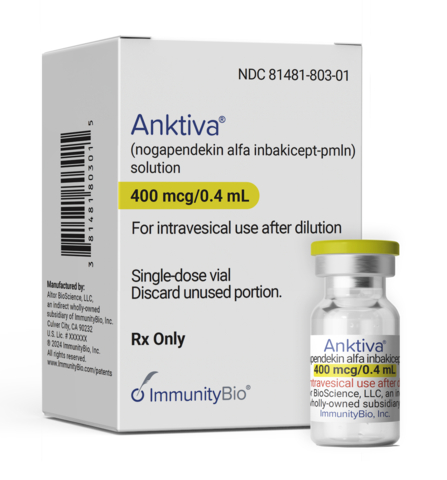AstraZeneca has won its first-in-class approval for its AKT inhibitor Truqap (capivasertib) in combination with Faslodex (fulvestrant) for treating patients with hormone receptor (HR)-positive, human epidermal growth factor receptor 2 (HER2)-negative advanced breast cancer. Faslodex is the company’s selective estrogen receptor downregulator (SERD) used alone or in combination with other therapies to treat advanced HER2-negative breast cancer.
The newly approved Truqap and Faslodex combo is restricted to patients with a genetic alteration in one or more of the following PI3K/AKT pathway genes: PIK3CA, AKT1 or PTEN. Patients must also have received at least one endocrine-based regimen in the metastatic setting or have had disease recurrence within 12 months of completing adjuvant therapy.
PI3K/AKT is a key intracellular signaling pathway that regulates cell survival and proliferation. Alterations in genes in the PI3K family lead to aberrant activation of the pathway to enhance cancer cell survival. The mutations are common in many cancers including breast, lung, prostate and ovarian cancers.
In advanced HR-positive breast cancer, mutations or alterations in PIK3CA, AKT1 and PTEN are common, being found in as many as 50 percent of patients. Despite the widespread use of endocrine therapies, resistance to first-line treatments (first-line cyclin-dependent kinase [CDK] 4/6 inhibitors and estrogen receptor-targeting therapies) is a significant concern, highlighting the need for new therapeutic options.
Despite the combo Truqap treatment having shown clinical benefit in patients with non-PI3K/AKT mutated tumors, the FDA did not extend approval to this group, which was an unexpected label restriction for AstraZeneca.
XTALKS WEBINAR: FDA Oncology Center of Excellence: Programs & Projects That Impact Drug Development
Live and On-Demand: Thursday, December 7, 2023, at 9:30am EST (3:30pm CET/EU-Central)
Register for this free webinar to learn about the FDA Oncology Center of Excellence’s special projects and programs. The featured speakers will discuss innovative trial designs, methods of analysis and operational strategies to fulfill regulatory requirements.![]()
Globally, breast cancer is the most common cancer and a leading cause of cancer-related deaths. HR-positive breast cancer, which includes estrogen or progesterone receptor-positive tumors, is the most common subtype, accounting for over 65 percent of breast cancer cases.
In 2020, more than 2 million people were diagnosed with breast cancer with nearly 685,000 deaths globally. It is estimated that in the US in 2023, over 290,000 individuals will be diagnosed with the cancer with over 43,000 related deaths.
Truqap’s FDA approval was based on findings from the CAPItello-291 Phase III study, which were published in The New England Journal of Medicine earlier this year. Results from the study showed that the combination of Truqap and Faslodex cut the risk of disease progression or death by 50 percent compared to Faslodex alone in patients with tumors harboring PI3K/AKT pathway biomarker alterations. Median progression-free survival (PFS) improved from 3.1 months to 7.3 months.
An exploratory analysis found that the regimen also improved PFS by 21 percent in patients with tumors not harboring any PI3K/AKT pathway mutations. However, despite this, the FDA did not extend approval to non-PI3K/AKT mutated breast cancer, perhaps based on additional data that they reviewed.
The FDA has also been placing greater emphasis on overall survival, longer follow-up of studies and life expectancy in their review of oncology drugs.
The clinical development of PI3K and AKT inhibitors has proven to be more challenging than expected. While the FDA has approved several PI3K inhibitors, it shuttered single-arm trial approvals to the inhibitors in 2022 over concerns of toxicities and patient survival data, recommending randomized clinical trials to address the safety issues.
AKT inhibitors have faced even greater challenges in trials due to issues of resistance and adverse effects like hyperglycemia, hyperinsulinemia and gastrointestinal issues.
Some AKT inhibitors in clinical studies currently include Roche’s GDC-0068 (ipatasertib), Laekna Therapeutics’ GSK2110183 (afuresertib) and Merck’s MK-2206, which are being evaluated for treating various cancers including prostate, blood, stomach and bowel cancers in combination with other treatments.
Along with the approval of Truqap, the FDA also approved a companion diagnostic test for the detection of the relevant gene alterations (PIK3CA, AKT1 and PTEN).
Ultravist (Iopromide) Paves New Path in Breast Cancer Detection
In a press release announcing Truqap’s approval, Dave Fredrickson, executive vice president, Oncology Business Unit, AstraZeneca, said, “The rapid US approval of Truqap reinforces the important role of the PI3K/AKT pathway in HR-positive breast cancer and the critical need to test patients at the time of diagnosis, as up to 50 percent have tumors with these alterations. As a first-in-class medicine, this approval provides a critical new option for patients in the US with this specific type of disease and we look forward to bringing Truqap to the many breast cancer patients who can benefit across the globe.”
Truqap was reviewed under the FDA’s Project Orbis, which offers a framework for the concurrent submission and review of oncology drugs among international regulators. It was also given FDA priority review.
Truqap is an addition to AstraZeneca’s robust breast cancer portfolio, which includes Daiichi Sankyo-partnered Enhertu. The antibody-drug combination was approved in 2022 for both HER2-positive and HER2-low (a new HER2-negative subtype) breast cancer, with the HER2-positive approval having come three months before the HER2-low one.
The company is also developing camizestrant, an oral SERD that posted positive Phase II data last year and is currently in Phase III trials.
Despite the unexpected label restriction, AstraZeneca’s oncology business chief David Fredrickson said as patients are followed toward the trial’s final overall survival analysis, “there’s an opportunity for us to revisit whether or not there’s an opportunity to expand the label beyond where we are.”
Due to the restricted label, analysts at Leerink Partners lowered their estimated peak sales for Truqap from $2.36 billion to $1.28 billion.
Truqap will compete with Novartis’ PI3K inhibitor Piqray (alpelisib), which received FDA approval in 2019 in combination with Faslodex for previously treated HR-positive/HER2-negative, PIK3CA-mutated breast cancer.












Join or login to leave a comment
JOIN LOGIN